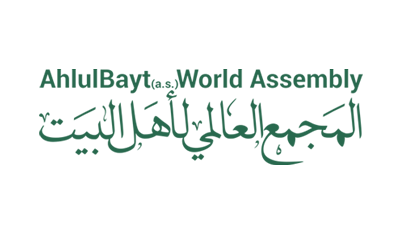Swiss Muslims are prosperous but not socially influential: Afshar
The head of the coordination of Swiss Muslim organizations said, “If we compare the situation of Muslims in Switzerland with neighboring countries, we find that Muslims in neighboring countries are not successful either. Rather, they are on the margins of society. In Switzerland, Muslims are economically active but culturally absent.”
On Saturday, March 5, 2022, on the first anniversary of Hojat al-Islam Sayed Moghtada Hosseini Abhari, the specialized conference “The situation of Shia in the West” was held.
In the conference, the head of the coordination of Swiss Muslim organizations and a member of the Swiss Council of Religions said, “My acquaintance with Hojat al-Islam Haj Sayed Moghtada Hosseini Abhari dates back to more than 20 years ago. His interesting and attractive personality created trust between different schools of Islam and different religions. He managed to establish several institutions in the south of Switzerland. The establishment of the Imam Ali Institute (a.s.), Office for the Defense of the Rights of the AhlulBayt (a.s.) followers in Switzerland, which was established in cooperation with the United Nations, and the AhlulBayt (a.s.) Institute, which has a magazine called ‘Dialogue of Religions’, are among his efforts.”
“Swiss Muslims are economically prosperous and have immigrated to this country from sixty different countries. They first came to Switzerland from the former Yugoslavia and Turkey. Then, they migrated to the country from Asian and African countries,” Dr. Farhad Afshar stated about the situation of Muslims in Switzerland.
“Why are Muslims in Switzerland economically prosperous but not socially influential?” he asked, “If we compare the situation of Muslims in Switzerland with neighboring countries, we find that Muslims in neighboring countries are not successful either. Rather, they are on the margins of society. In Switzerland, Muslims are economically active but culturally absent.”
Regarding the reasons for the lack of cultural presence of Muslims in Switzerland, the head of the coordination of Swiss Muslim organizations said, “In my opinion, this issue has two important and effective reasons. The first is the Swiss professional training system. The Swiss education system consists of two pillars. The first pillar, like other countries, is school, primary school, high school and so on. The second pillar is vocational training. Diploma, bachelor, master, and doctoral courses are vocational. As a result, it can be said that the Swiss education system is a production-oriented system, not a degree- oriented one. This helps the graduates to be employed immediately.”
“Muslims in Switzerland are prosperous but not influential. This is due to their living conditions. Because working-class and agricultural Muslims who migrated to Switzerland and work, maintained their culture in the same traditional style and still live in that culture. Muslims are present in Switzerland but do not live with the Swiss people. They are like ship passengers traveling on the sea. The passengers of the ship are busy, talking and eating together, but they do not pay attention to the movement of the ship. They do not realize that the ship is heading towards the rock (Islamophobia) or standing by the port. Thus, Swiss Muslims face Islamophobia while being prosperous,” he continued.
“Three laws banning the minaret, banning the niqab and the law of monitoring private life have been enacted against Muslims in Switzerland. The question arises why Muslims in Switzerland do not live with the Swiss people? In Islamic institutions in Switzerland, there is no educated imam who is familiar with the culture, language, and civilization of this country. Rather, there are people who come from abroad and return. As a result, Swiss Muslims are unaware that Switzerland is a country that manages a quarter of the world economy. Particularly, they have no knowledge of Islamic economics,” stated Dr. Afshar about the situation of Muslims in Switzerland.
“The size of the Islamic world economy is about two trillion dollars, and the size of the Islamic insurance system is about one trillion dollars. But is this Islamic economy run by Islamic countries or communities? The answer to this question is no. This economic system is governed by two very small countries in the world, namely Switzerland and Liechtenstein,” he said, regarding the Islamic economics.
“If it is necessary to make changes in the Islamic banking system, it must be done by Muslims themselves. Therefore, our institute is about to establish the International Islamic Academy and wants to introduce the culture and view of Islam with the cooperation of experts and scientists from around the world, so that we can introduce the view of Islam into economic production in the world. Without production, Islam will not be influential,” concluded a member of the Swiss Council of Religions.
It should be mentioned that the commemoration of late Hojat al-Islam Haj Sayed Moghtada Hosseini Abhari, and the specialized conference “The situation of Shia in the West” was held virtually by the AhlulBayt (a.s.) World Assembly, the Imam Ali (a.s.) Center of Lugano, and the Office for the Defense of the Rights of the AhlulBayt (a.s.) followers in Switzerland.
University of Religions and Islamic Denominations, Swiss International Association for the Religions Studies, AhlulBayt (a.s.) News Agency - ABNA, Foundation for Iran-Netherlands Friendship and Developing Relations, Islamic and Cultural Foundation of the AhlulBayt (a.s.) Geneva, Europersia University of International Interaction, Secretariat of Iranian Theologians, Coordination of Islamic Organizations in Switzerland (KIOS), Islamic Confederation of Shiites in Italy, Al-Bayan Institution for Connection and Establishing, The World Center for Shiite Studies, AhlulBayt (a.s.) Islamic Cultural Center of Zurich, Imam Ali Cultural Center of Milan, and Scientific Association of Shiite sects, participated in the conference.
The head of the coordination of Swiss Muslim organizations said, “If we compare the situation of Muslims in Switzerland with neighboring countries, we find that Muslims in neighboring countries are not successful either. Rather, they are on the margins of society. In Switzerland, Muslims are economically active but culturally absent.”
On Saturday, March 5, 2022, on the first anniversary of Hojat al-Islam Sayed Moghtada Hosseini Abhari, the specialized conference “The situation of Shia in the West” was held.
In the conference, the head of the coordination of Swiss Muslim organizations and a member of the Swiss Council of Religions said, “My acquaintance with Hojat al-Islam Haj Sayed Moghtada Hosseini Abhari dates back to more than 20 years ago. His interesting and attractive personality created trust between different schools of Islam and different religions. He managed to establish several institutions in the south of Switzerland. The establishment of the Imam Ali Institute (a.s.), Office for the Defense of the Rights of the AhlulBayt (a.s.) followers in Switzerland, which was established in cooperation with the United Nations, and the AhlulBayt (a.s.) Institute, which has a magazine called ‘Dialogue of Religions’, are among his efforts.”
“Swiss Muslims are economically prosperous and have immigrated to this country from sixty different countries. They first came to Switzerland from the former Yugoslavia and Turkey. Then, they migrated to the country from Asian and African countries,” Dr. Farhad Afshar stated about the situation of Muslims in Switzerland.
“Why are Muslims in Switzerland economically prosperous but not socially influential?” he asked, “If we compare the situation of Muslims in Switzerland with neighboring countries, we find that Muslims in neighboring countries are not successful either. Rather, they are on the margins of society. In Switzerland, Muslims are economically active but culturally absent.”
Regarding the reasons for the lack of cultural presence of Muslims in Switzerland, the head of the coordination of Swiss Muslim organizations said, “In my opinion, this issue has two important and effective reasons. The first is the Swiss professional training system. The Swiss education system consists of two pillars. The first pillar, like other countries, is school, primary school, high school and so on. The second pillar is vocational training. Diploma, bachelor, master, and doctoral courses are vocational. As a result, it can be said that the Swiss education system is a production-oriented system, not a degree- oriented one. This helps the graduates to be employed immediately.”
“Muslims in Switzerland are prosperous but not influential. This is due to their living conditions. Because working-class and agricultural Muslims who migrated to Switzerland and work, maintained their culture in the same traditional style and still live in that culture. Muslims are present in Switzerland but do not live with the Swiss people. They are like ship passengers traveling on the sea. The passengers of the ship are busy, talking and eating together, but they do not pay attention to the movement of the ship. They do not realize that the ship is heading towards the rock (Islamophobia) or standing by the port. Thus, Swiss Muslims face Islamophobia while being prosperous,” he continued.
“Three laws banning the minaret, banning the niqab and the law of monitoring private life have been enacted against Muslims in Switzerland. The question arises why Muslims in Switzerland do not live with the Swiss people? In Islamic institutions in Switzerland, there is no educated imam who is familiar with the culture, language, and civilization of this country. Rather, there are people who come from abroad and return. As a result, Swiss Muslims are unaware that Switzerland is a country that manages a quarter of the world economy. Particularly, they have no knowledge of Islamic economics,” stated Dr. Afshar about the situation of Muslims in Switzerland.
“The size of the Islamic world economy is about two trillion dollars, and the size of the Islamic insurance system is about one trillion dollars. But is this Islamic economy run by Islamic countries or communities? The answer to this question is no. This economic system is governed by two very small countries in the world, namely Switzerland and Liechtenstein,” he said, regarding the Islamic economics.
“If it is necessary to make changes in the Islamic banking system, it must be done by Muslims themselves. Therefore, our institute is about to establish the International Islamic Academy and wants to introduce the culture and view of Islam with the cooperation of experts and scientists from around the world, so that we can introduce the view of Islam into economic production in the world. Without production, Islam will not be influential,” concluded a member of the Swiss Council of Religions.
It should be mentioned that the commemoration of late Hojat al-Islam Haj Sayed Moghtada Hosseini Abhari, and the specialized conference “The situation of Shia in the West” was held virtually by the AhlulBayt (a.s.) World Assembly, the Imam Ali (a.s.) Center of Lugano, and the Office for the Defense of the Rights of the AhlulBayt (a.s.) followers in Switzerland.
University of Religions and Islamic Denominations, Swiss International Association for the Religions Studies, AhlulBayt (a.s.) News Agency - ABNA, Foundation for Iran-Netherlands Friendship and Developing Relations, Islamic and Cultural Foundation of the AhlulBayt (a.s.) Geneva, Europersia University of International Interaction, Secretariat of Iranian Theologians, Coordination of Islamic Organizations in Switzerland (KIOS), Islamic Confederation of Shiites in Italy, Al-Bayan Institution for Connection and Establishing, The World Center for Shiite Studies, AhlulBayt (a.s.) Islamic Cultural Center of Zurich, Imam Ali Cultural Center of Milan, and Scientific Association of Shiite sects, participated in the conference.






